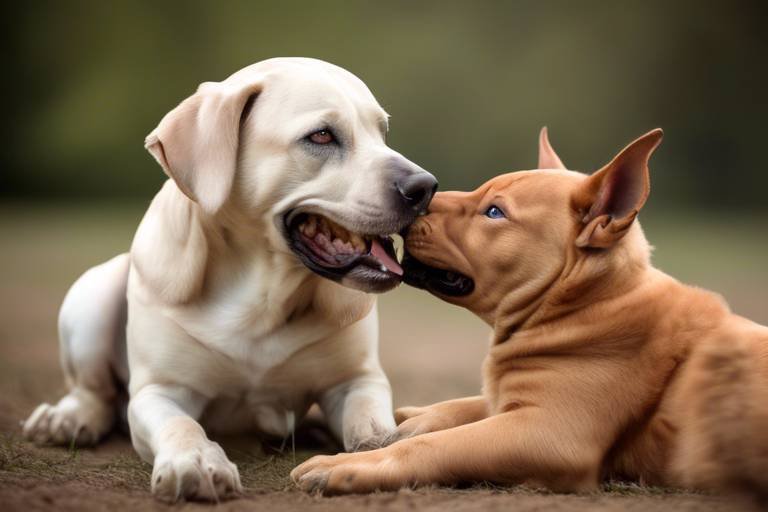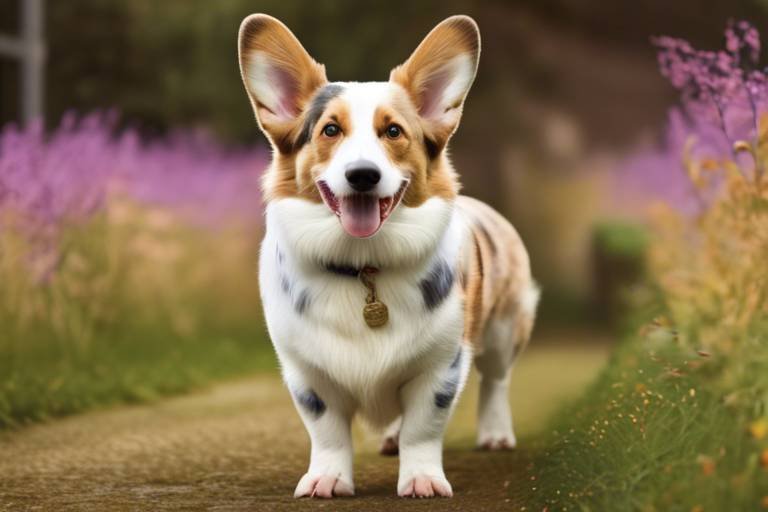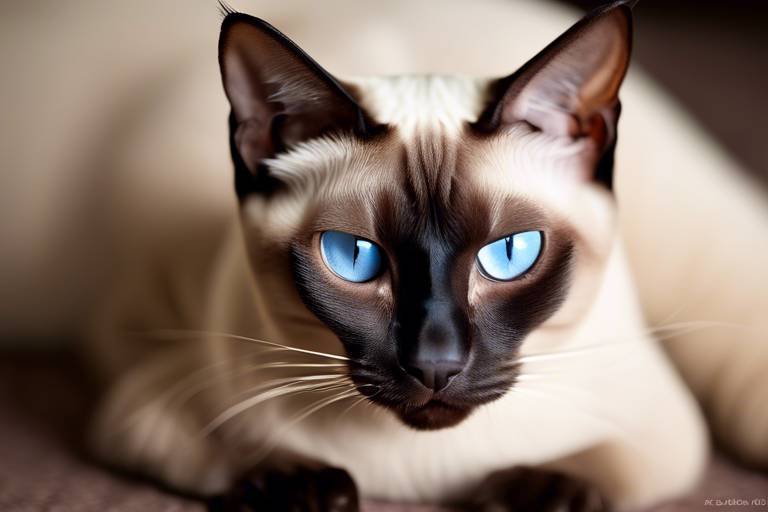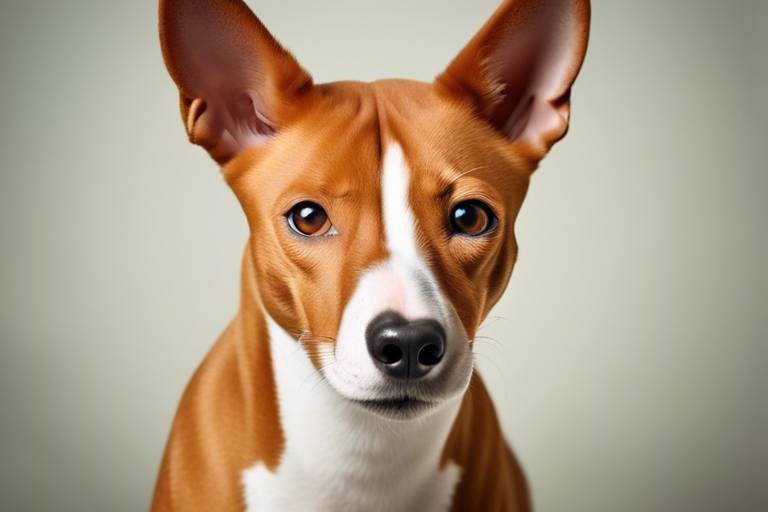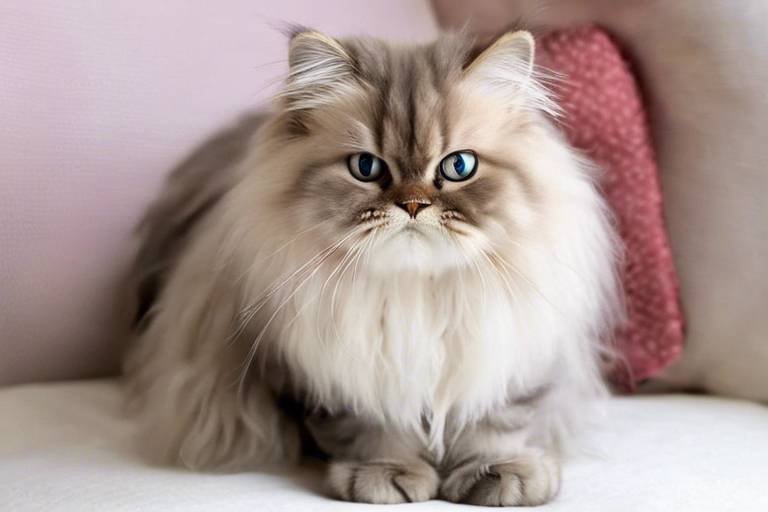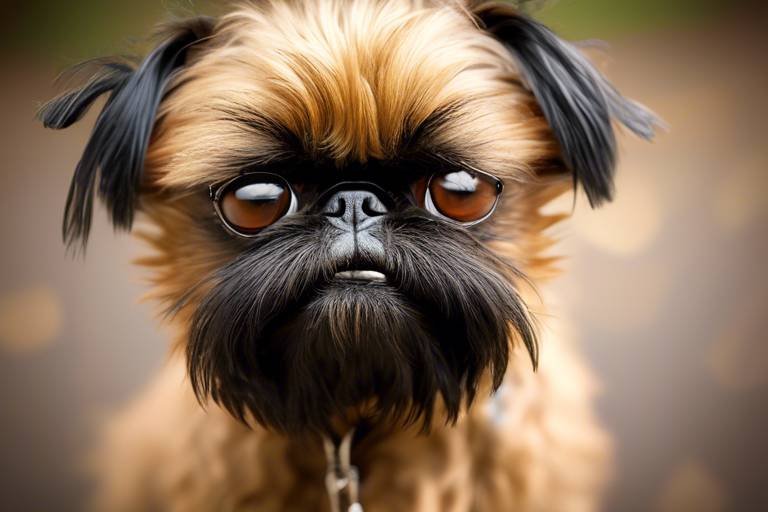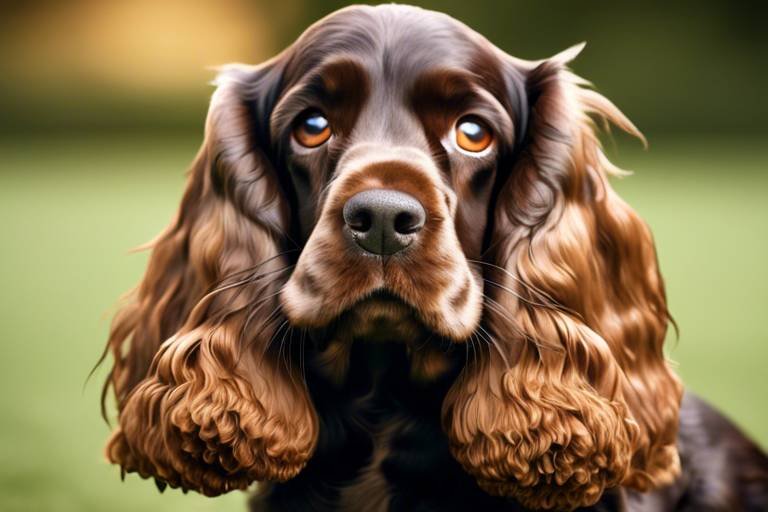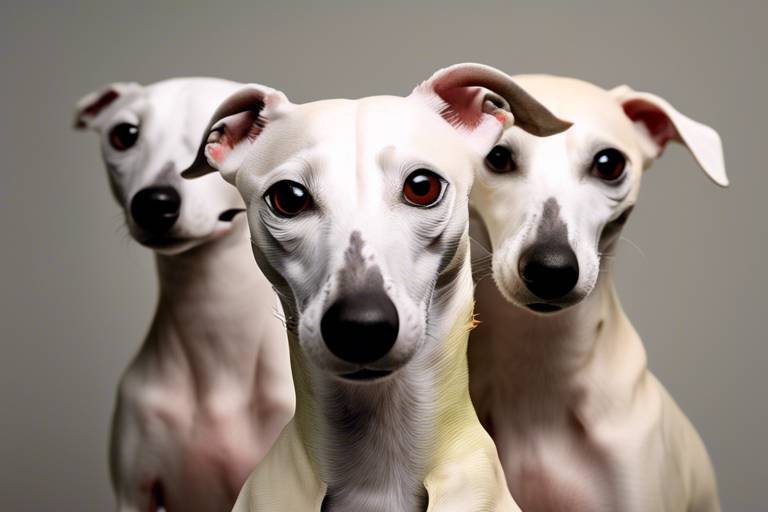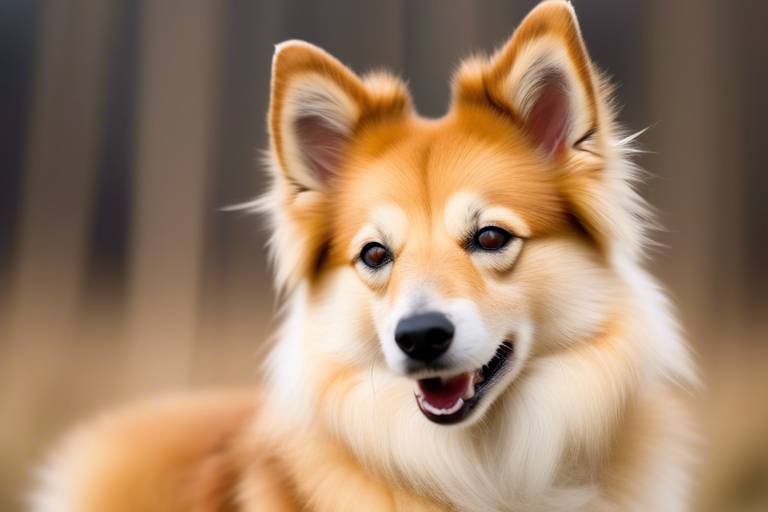The Traits of the Chihuahua - What You Should Know
Chihuahuas, often considered the smallest dog breed, pack a big personality into their tiny frames. Originating from Mexico, these little companions have captured hearts around the world with their unique traits and vibrant energy. Whether you’re a seasoned dog owner or a first-time pet parent, understanding the characteristics of Chihuahuas is essential for providing the best care and companionship. In this article, we will explore their temperament, physical traits, health considerations, and more, offering insightful guidance for potential owners.
Chihuahuas are renowned for their bold and lively personalities. These tiny dogs are often described as fearless and confident, making them excellent watchdogs despite their size. They are incredibly loyal to their owners, often forming strong bonds and displaying affection in their unique ways. However, it’s important to note that their stubbornness can sometimes be a challenge during training sessions. A Chihuahua may act like a little diva, but with patience and consistency, they can learn basic commands and tricks. So, are you ready to embrace the spirited nature of a Chihuahua?
Chihuahuas come in a variety of shapes, sizes, and colors, making each one unique. Typically, they stand between 6 to 9 inches tall and weigh around 2 to 6 pounds. Their distinct features include large, expressive eyes and a rounded skull, giving them an adorable appearance that many find irresistible. Let’s take a closer look at their coat types and size variations.
Chihuahuas can have either short or long coats, each requiring different grooming needs. The short-haired variety is often easier to maintain, needing only occasional brushing, while long-haired Chihuahuas require more frequent grooming to prevent tangles and mats. Understanding these differences can help you choose the right Chihuahua for your lifestyle.
Short-haired Chihuahuas are typically sleek and shiny, with a coat that lies close to their body. They are low-maintenance in terms of grooming, requiring just a quick brush once a week to keep their coat healthy. Their minimal shedding makes them a great choice for those who prefer a cleaner home environment.
On the other hand, long-haired Chihuahuas have a luxurious, flowing coat that requires more attention. Regular brushing—at least two to three times a week—is essential to keep their fur tangle-free and healthy. These dogs often have a feathered appearance on their ears and tails, adding to their charm.
While Chihuahuas are generally small, there can be significant variations in size among individual dogs. Factors such as genetics, diet, and overall health can influence their final size. Typically, they fall within the 2 to 6 pounds range, but some may weigh slightly more or less. Understanding these size variations can help you prepare for the specific needs of your Chihuahua.
Like all breeds, Chihuahuas have specific health issues that potential owners should be aware of. Regular veterinary check-ups are crucial to monitor their health and catch any potential problems early. Common health concerns include dental issues, heart conditions, and patellar luxation. Being informed about these issues can help you provide the best care for your furry friend.
Chihuahuas may be prone to certain genetic conditions, which can impact their quality of life. Dental problems are particularly common due to their small mouths, often leading to tooth decay or loss. Additionally, heart conditions like mitral valve disease can affect their health as they age. Regular dental care and veterinary visits are essential to monitor these issues effectively.
Preventative care is key to ensuring a long and healthy life for your Chihuahua. Regular veterinary check-ups, vaccinations, and dental cleanings can help catch potential health issues before they become serious. Consider establishing a routine that includes:
- Annual health check-ups
- Regular dental cleanings
- Vaccinations as recommended by your vet
Training is vital for Chihuahuas due to their strong personalities. These little dogs can be quite independent, making effective training techniques crucial for a well-behaved pet. Socialization is equally important, helping them develop good behavior around people and other pets.
Teaching basic commands like sit, stay, and come can significantly enhance communication with your Chihuahua. Positive reinforcement, such as treats and praise, works wonders with this intelligent breed. Remember, consistency is key!
To ensure your Chihuahua grows into a well-rounded dog, expose them to various environments, people, and other animals. Start socialization early, and consider enrolling them in puppy classes or playgroups. This exposure will help them feel more comfortable and confident in different situations.
Chihuahuas are incredibly adaptable and can thrive in various living environments, whether in an apartment or a house. Their small size makes them perfect companions for those with limited space, but they still need proper care and attention to stay happy and healthy.
Chihuahuas can be excellent companions in smaller spaces. To keep your Chihuahua happy in an apartment setting, ensure they have a designated area to play and relax. Regular walks and playtime are essential for their physical and mental stimulation.
For those with more space, owning a Chihuahua in a house offers unique benefits. Create a safe and stimulating environment by providing toys, a cozy bed, and a secure yard for them to explore. This will help keep your Chihuahua engaged and happy.
Understanding the traits of Chihuahuas is key to being a responsible owner. Their bold personalities, unique physical characteristics, and specific health considerations make them a special breed. By being informed and prepared, you can provide a loving and nurturing environment for your Chihuahua, ensuring a long and happy life together.
1. Are Chihuahuas good for first-time dog owners?
Yes, Chihuahuas can be great for first-time dog owners, but their strong personalities require patience and commitment to training.
2. Do Chihuahuas shed a lot?
Short-haired Chihuahuas shed less than long-haired ones, but all Chihuahuas require regular grooming to manage shedding.
3. How much exercise do Chihuahuas need?
Chihuahuas need daily exercise, including walks and playtime, to stay healthy and happy.
4. Can Chihuahuas be left alone for long periods?
Chihuahuas are social animals and can become anxious if left alone for too long. It’s best to have someone check on them or provide companionship.
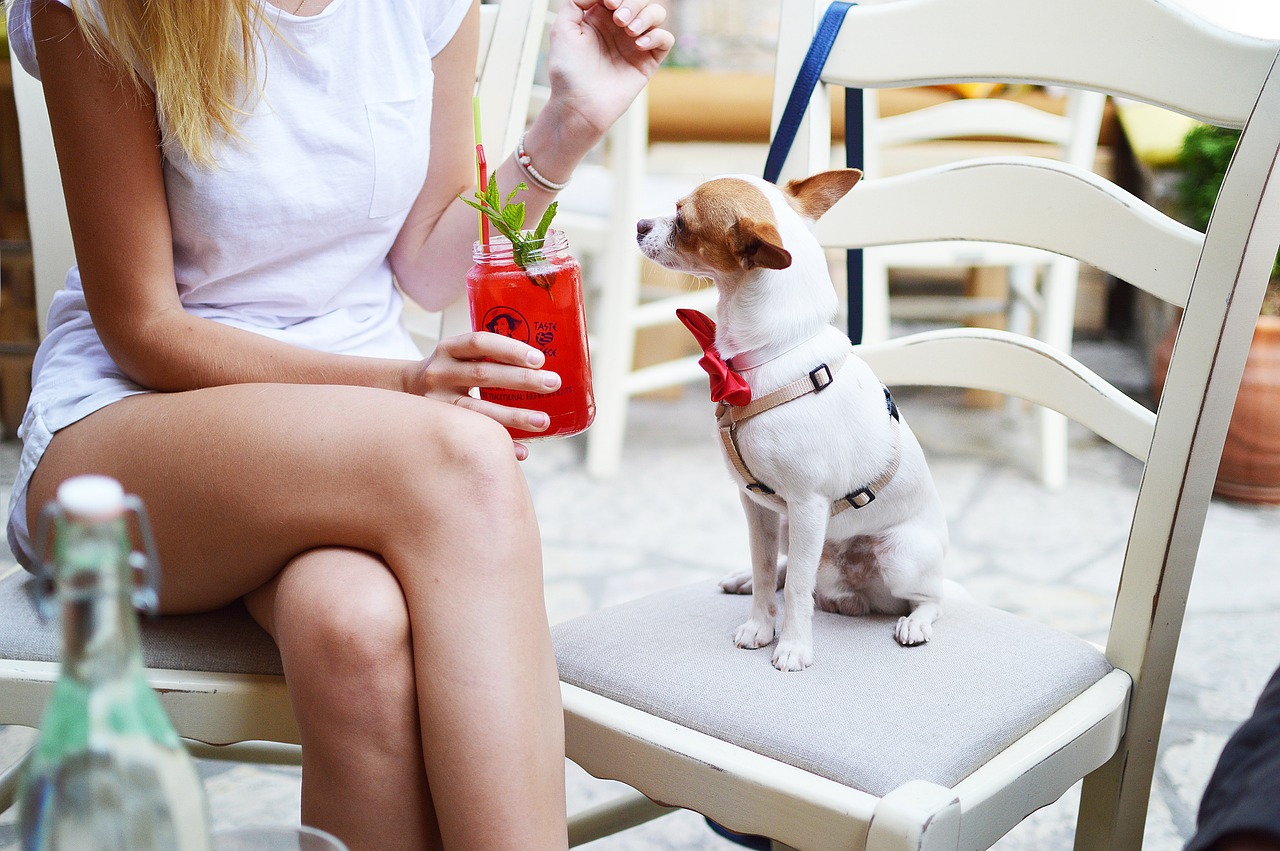
Temperament of Chihuahuas
Chihuahuas are often described as bold and lively little companions that pack a big personality into a tiny frame. These dogs are known for their loyalty and affection, often forming strong bonds with their owners. If you’re considering adding a Chihuahua to your family, it’s essential to understand what makes these little dogs tick. Their spirited nature can bring joy and excitement to your life, but it can also come with some challenges.
One of the most notable traits of Chihuahuas is their fearlessness. Despite their small size, they often act as if they are much larger than they truly are. This can lead to some amusing situations, especially when they attempt to take on larger dogs. However, this boldness can also manifest as stubbornness, making training a bit of a challenge. It's important to approach training with patience and consistency, using positive reinforcement techniques to encourage good behavior.
Chihuahuas are also known for their affectionate nature. They thrive on human interaction and often seek out cuddles and attention from their owners. This breed is particularly fond of being held and may follow you around the house, wanting to be involved in everything you do. Their desire for companionship makes them excellent lap dogs, but it also means they can suffer from separation anxiety if left alone for too long.
Another aspect of their temperament is their territorial instinct. Chihuahuas can be quite protective of their home and family. They may bark at strangers or other pets, which can make them good watchdogs. However, this behavior can also lead to issues if not managed properly. Early socialization is crucial to help your Chihuahua learn how to behave around new people and other animals.
In summary, the temperament of a Chihuahua is a mix of boldness, affection, and a touch of stubbornness. Understanding these traits will help you prepare for the joys and challenges of owning one of these delightful dogs. With the right training and socialization, a Chihuahua can be a wonderful companion that brings endless love and laughter into your home.
- Are Chihuahuas good with children? - Yes, but supervision is essential to ensure both the child and the dog are safe.
- Do Chihuahuas bark a lot? - They can be vocal, especially if they feel threatened or are trying to alert you to something.
- How much exercise do Chihuahuas need? - A few short walks and playtime each day are usually sufficient for their exercise needs.
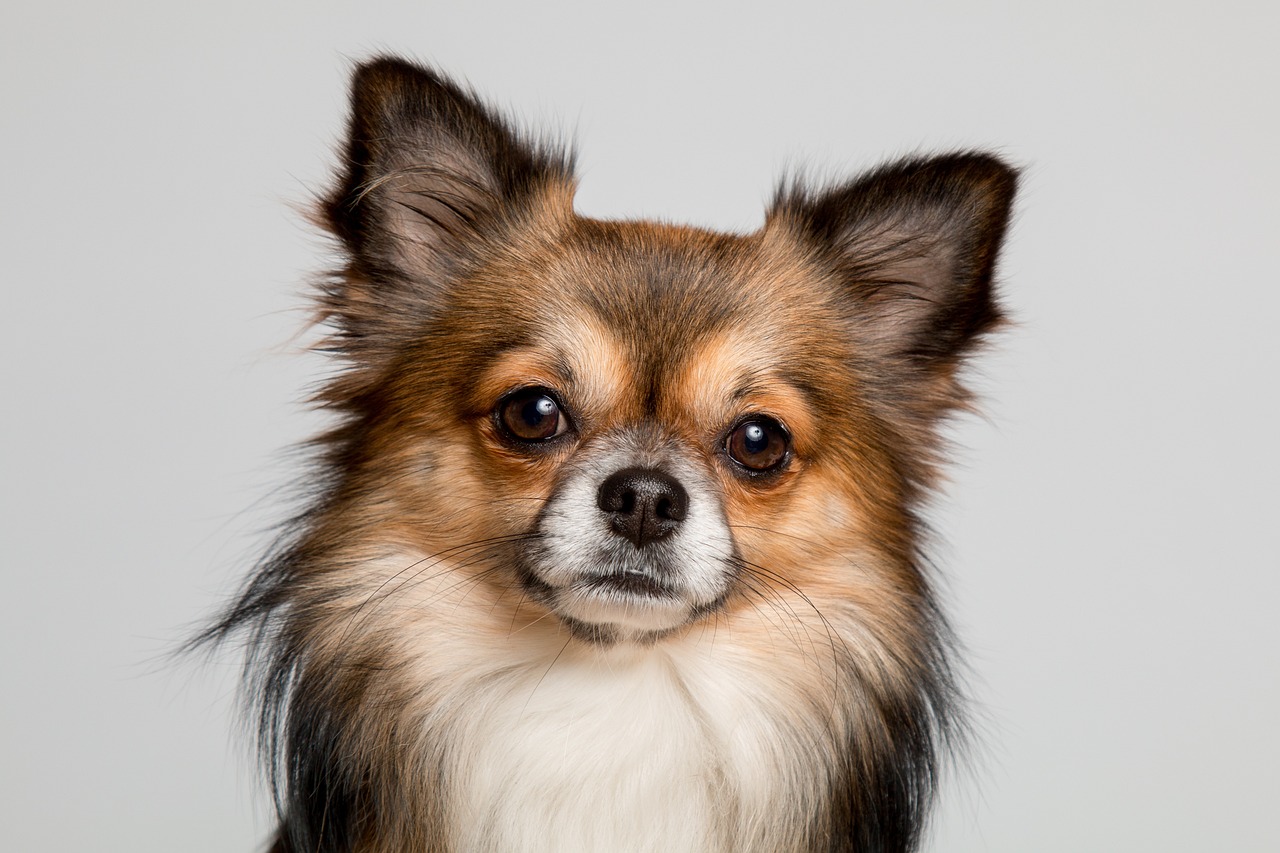
Physical Characteristics
Chihuahuas are one of the most recognizable dog breeds, not just for their tiny size but also for their unique physical traits. These little companions come in a variety of shapes and sizes, and their distinct features make them stand out in a crowd. Typically, a Chihuahua will weigh between 2 to 6 pounds and stand about 6 to 9 inches tall at the shoulder. However, their personality is often larger than life, making them feel much bigger than their petite frames suggest.
One of the most fascinating aspects of Chihuahuas is their coat types. They can either have short or long coats, each presenting its own set of grooming needs and aesthetic appeal. The short-haired variety usually has a sleek, smooth coat that lies flat against the body, while long-haired Chihuahuas boast a fluffy and voluminous appearance. This diversity in coat types allows owners to choose based on their preferences for maintenance and style.
Understanding the differences between short-haired and long-haired Chihuahuas is essential for potential owners. Short-haired Chihuahuas are often easier to groom, requiring minimal brushing and maintenance. Their coats are less prone to matting, making them a convenient choice for busy pet owners. In contrast, long-haired Chihuahuas require more diligent grooming to keep their beautiful locks healthy and tangle-free. Regular brushing and occasional trips to a professional groomer can help maintain their luxurious fur.
Short-haired Chihuahuas are known for their sleek appearance and minimal grooming needs. Their coats come in a variety of colors, including fawn, black, white, and chocolate. One of the benefits of owning a short-haired Chihuahua is that they are less prone to skin issues, as their coats allow for better air circulation. Owners should still keep an eye on their pet's skin, ensuring they remain healthy and free from irritations.
Long-haired Chihuahuas, on the other hand, are often seen as the more glamorous of the two. Their flowing coats can come in various patterns and colors, making them visually stunning companions. However, their beautiful fur requires more upkeep. Regular brushing is essential to prevent matting and to keep their coat looking its best. Owners should also consider using a gentle dog shampoo to maintain the coat’s health and shine.
When it comes to size, Chihuahuas can vary significantly. While most fall within the typical weight range of 2 to 6 pounds, some may be larger or smaller due to genetics or breeding practices. Factors influencing size include:
- Genetics: Breeding practices can lead to variations in size among individual dogs.
- Nutrition: A well-balanced diet is crucial for healthy growth and development.
- Health: Certain health issues can affect a Chihuahua's growth and overall size.
Understanding these variations is vital for prospective owners, as it helps them prepare for the unique care needs of their Chihuahua based on its size.
Coat Types
When it comes to Chihuahuas, one of the most striking features is their coat. These adorable little dogs can flaunt either short or long coats, and each type comes with its own unique set of characteristics and grooming needs. Understanding these differences is essential for potential owners, as it can greatly influence your choice and the care you provide.
Short-haired Chihuahuas are often favored for their low-maintenance grooming routine. Their sleek coats lie close to the body, making them less prone to matting and tangles. This means less time spent on grooming and more time enjoying cuddles with your furry friend! However, they do shed, so regular brushing can help minimize loose hair around the house. A simple weekly brush will suffice to keep their coat looking shiny and healthy.
On the other hand, long-haired Chihuahuas are a bit more high-maintenance when it comes to grooming. Their luxurious coats require regular brushing—ideally every few days—to prevent knots and tangles from forming. These Chihuahuas often have a soft, flowing coat that adds to their charm, but it can also trap dirt and debris, necessitating occasional baths to keep them clean. Owners should invest in a good quality brush and perhaps even a detangling spray to make grooming sessions more enjoyable for both the dog and the owner.
Here’s a quick comparison of the two coat types:
| Coat Type | Grooming Frequency | Shedding | Special Care |
|---|---|---|---|
| Short-Haired | Weekly | Moderate | Occasional bathing |
| Long-Haired | Every few days | Higher | Regular baths and detangling |
Regardless of the coat type, it’s essential to keep an eye on your Chihuahua’s skin health. Look out for any signs of irritation or dryness, as both coat types can be susceptible to skin issues. Regular vet check-ups can help catch any potential problems early on.
Ultimately, whether you choose a short-haired or long-haired Chihuahua, both types have their own unique appeal and charm. The key is to understand their specific grooming needs and be prepared to invest the time and effort required to keep them looking and feeling their best.
- Do Chihuahuas shed a lot? Yes, both short and long-haired Chihuahuas shed, but the amount can vary. Regular grooming can help manage shedding.
- How often should I bathe my Chihuahua? For short-haired Chihuahuas, a bath every few months is usually sufficient, while long-haired Chihuahuas may need baths more frequently depending on their activity level.
- Can I groom my Chihuahua at home? Absolutely! With the right tools and a little patience, you can groom your Chihuahua at home. However, if you're unsure, consider consulting a professional groomer.
Short-Haired Chihuahuas
Short-haired Chihuahuas, often referred to as "smooth coats," are a popular choice among dog lovers for their low-maintenance grooming needs and vibrant personalities. These little furballs pack a lot of character into their tiny frames, typically weighing between 2 to 6 pounds. Their short, sleek coats come in a variety of colors, including fawn, black, white, and chocolate, making each one unique and adorable in its own right.
One of the most appealing aspects of short-haired Chihuahuas is their ease of care. Unlike their long-haired counterparts, they don't require extensive grooming sessions. A quick brush every now and then is usually sufficient to keep their coat looking shiny and healthy. This makes them an excellent choice for busy individuals or families who want a loving pet without the commitment of daily grooming. However, it's important to remember that they do shed, albeit not excessively, so regular cleaning around the house will help keep things tidy.
Short-haired Chihuahuas are also known for their energetic and playful nature. They love to engage with their owners and are always up for a game of fetch or a playful romp around the house. Their lively spirit can provide endless entertainment, and they often form strong bonds with their human companions. However, their playful demeanor can sometimes lead to stubbornness, so early training and consistent commands are essential to ensure they grow into well-behaved adults.
When it comes to health, short-haired Chihuahuas are generally robust, but they can be prone to certain conditions that owners should be aware of. Regular vet check-ups, a balanced diet, and adequate exercise are crucial for maintaining their health. Additionally, their small size makes them susceptible to injuries, so careful supervision, especially around larger pets or children, is necessary.
In summary, owning a short-haired Chihuahua can be a delightful experience filled with love and laughter. Their charming disposition, combined with their manageable grooming needs, makes them an ideal pet for many. Just remember to provide them with proper training, socialization, and health care to ensure a happy and fulfilling life together.
- Do short-haired Chihuahuas shed a lot? While they do shed, it is not excessive. Regular brushing can help manage loose hair.
- How often should I groom my short-haired Chihuahua? A quick brush once a week is usually sufficient to keep their coat healthy.
- Are short-haired Chihuahuas good with children? Yes, they can be great with children, but supervision is necessary to prevent accidental injuries.
- What is the typical lifespan of a short-haired Chihuahua? They generally live between 12 to 20 years with proper care.
Long-Haired Chihuahuas
Long-haired Chihuahuas are often regarded as the fluffier and more glamorous cousins of their short-haired counterparts. With their luxurious coats that can resemble a flowing mane, these little dogs certainly make a statement wherever they go. However, owning a long-haired Chihuahua comes with its own set of responsibilities and care requirements that potential owners should be aware of.
One of the most notable features of long-haired Chihuahuas is their soft, silky fur, which can come in a variety of colors and patterns. This breed typically has a double coat, consisting of a soft undercoat and a longer outer coat that can be straight or slightly wavy. While their adorable looks can be captivating, it’s essential to understand that their grooming needs are more demanding than those of short-haired Chihuahuas. Regular brushing is crucial to prevent tangles and mats, which can be uncomfortable for your furry friend.
When it comes to grooming, here are some essential tips to keep in mind:
- Daily Brushing: Aim for at least 15-20 minutes of brushing each day to keep their coat healthy and free of knots.
- Bathing: Bathe your long-haired Chihuahua every 4-6 weeks, using a gentle dog shampoo to maintain coat cleanliness without stripping natural oils.
- Ear Care: Long-haired Chihuahuas may be prone to ear infections, so regular ear cleaning is necessary.
- Nail Trimming: Regular nail trims are important to prevent discomfort and ensure they can walk properly.
In addition to grooming, long-haired Chihuahuas tend to have a playful and affectionate temperament. They are known for forming strong bonds with their owners and can be quite loyal. However, their spirited nature means they may also exhibit some stubbornness during training sessions. It’s crucial for owners to be patient and consistent when teaching commands or establishing boundaries. Positive reinforcement techniques work wonders with this breed, as they respond well to praise and rewards.
Another aspect to consider is their adaptability to different environments. Long-haired Chihuahuas are just as happy in an apartment as they are in a house, provided they receive adequate exercise and mental stimulation. Daily walks and interactive playtime are essential to keep them physically fit and mentally engaged.
In summary, owning a long-haired Chihuahua can be a rewarding experience filled with love and companionship. By understanding their grooming needs, training them effectively, and ensuring they have a stimulating living environment, you can enjoy a fulfilling relationship with your fluffy little friend. Just remember, the fluffier the coat, the more love and care it requires!
Q: How often should I groom my long-haired Chihuahua?
A: It’s best to brush them daily to prevent tangles and mats. Regular grooming helps keep their coat healthy.
Q: Are long-haired Chihuahuas more prone to health issues?
A: While long-haired Chihuahuas are generally healthy, they can be prone to certain genetic conditions. Regular vet check-ups are essential.
Q: Can long-haired Chihuahuas live in an apartment?
A: Yes! Long-haired Chihuahuas adapt well to apartment living as long as they receive enough exercise and mental stimulation.
Q: What is the best way to train a long-haired Chihuahua?
A: Positive reinforcement techniques work best. Be patient and consistent, and remember to reward them with treats and praise.
Size Variations
When it comes to Chihuahuas, size truly does matter! These little furballs can vary significantly in size, which can impact not only their appearance but also their health and care needs. Typically, Chihuahuas weigh anywhere from 2 to 6 pounds, but some may even tip the scales at a slightly higher weight. It's essential for prospective owners to understand these variations, as they can influence everything from diet to exercise requirements.
One of the fascinating aspects of Chihuahuas is their size range. While they are generally classified as a toy breed, you might come across some that are larger or smaller than the average. The size of a Chihuahua can be influenced by several factors, including genetics, diet, and overall health. For instance, a Chihuahua that comes from a lineage of larger dogs may grow to be on the heavier side, while one from smaller parents might remain tiny.
Here’s a quick overview of the typical weight categories for Chihuahuas:
| Size Category | Weight Range |
|---|---|
| Toy | 2 - 4 pounds |
| Standard | 4 - 6 pounds |
| Large | 6+ pounds |
Understanding these size variations is crucial for new owners. For example, smaller Chihuahuas may be more delicate and require extra care when it comes to handling and playtime. On the other hand, larger Chihuahuas might have a bit more stamina and could be more playful. Regardless of their size, all Chihuahuas thrive on love, attention, and proper care.
Additionally, it's worth noting that size can also affect their exercise needs. Smaller Chihuahuas may not require as much exercise as their larger counterparts, but they still need daily walks and playtime to keep them healthy and happy. It's essential to tailor your Chihuahua's activity level to their size to ensure they remain fit and avoid any potential health issues.
In conclusion, while Chihuahuas may be small, their size variations can have a significant impact on their care and lifestyle. Understanding these differences will help you provide the best environment for your furry friend, ensuring they lead a happy and healthy life.
- What is the average weight of a Chihuahua? The average weight typically ranges from 2 to 6 pounds.
- Can Chihuahuas be larger than 6 pounds? Yes, some Chihuahuas can weigh more than 6 pounds, especially if they come from larger lineage.
- Do smaller Chihuahuas require different care? Yes, smaller Chihuahuas may need more delicate handling and care compared to larger ones.
- How much exercise does a Chihuahua need? Chihuahuas generally need daily walks and playtime, but the amount can vary based on their size.
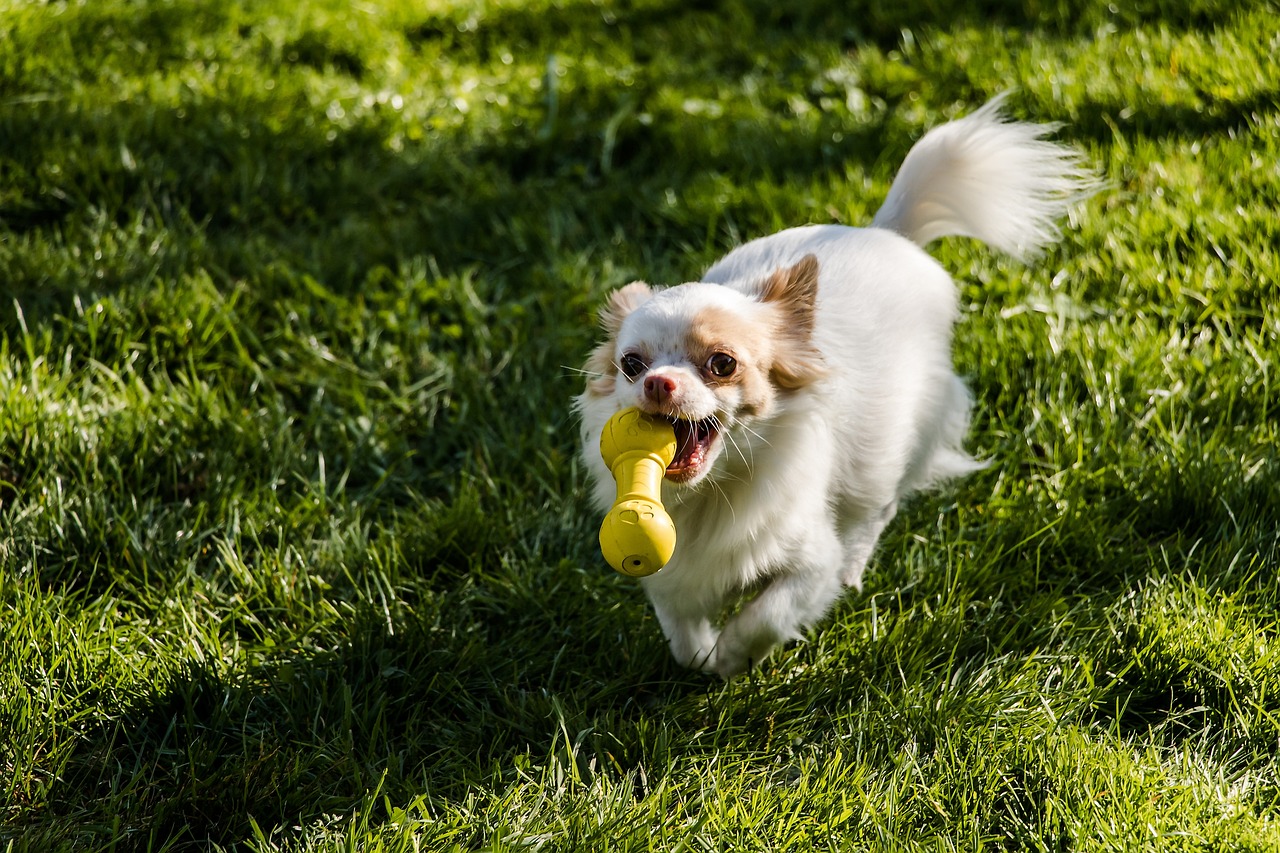
Health Considerations
When it comes to owning a Chihuahua, understanding their health considerations is crucial for ensuring a happy and long life for your furry friend. Like any other breed, Chihuahuas are prone to specific health issues that potential owners should be aware of. These small yet spirited dogs can face various challenges, so being proactive about their health is essential. Regular veterinary check-ups, a balanced diet, and a proper exercise routine can significantly contribute to their overall well-being.
One of the most common health concerns for Chihuahuas is dental problems. Due to their small mouths, they often experience overcrowded teeth, leading to issues such as gum disease and tooth decay. It’s important for owners to prioritize dental care by regularly brushing their dog’s teeth and providing dental chews to maintain oral hygiene. Additionally, keeping an eye on their weight is crucial, as obesity can lead to serious health complications, including heart disease and joint problems.
Another significant health issue that Chihuahuas may face is heart disease, particularly a condition known as patent ductus arteriosus (PDA). This congenital heart defect can affect their quality of life, so recognizing symptoms such as coughing, lethargy, or difficulty breathing is important. Regular vet visits can help in early detection and management of such conditions.
| Common Health Issues | Symptoms | Preventative Measures |
|---|---|---|
| Dental Problems | Painful chewing, bad breath | Regular dental check-ups, tooth brushing |
| Heart Disease (PDA) | Coughing, lethargy, difficulty breathing | Regular vet check-ups, healthy diet |
| Patellar Luxation | Skipping or limping on one leg | Weight management, regular exercise |
In addition to these specific conditions, Chihuahuas may also face other health issues such as patellar luxation, which is a dislocation of the kneecap. This can cause pain and mobility issues, so maintaining a healthy weight and providing appropriate exercise is vital. Regular vet check-ups will help monitor their health and address any emerging issues before they become serious.
Preventative care is the name of the game when it comes to keeping your Chihuahua healthy. Routine veterinary visits are essential for vaccinations, dental cleanings, and overall health assessments. Vaccinations protect against various diseases, while regular check-ups allow your vet to catch any potential problems early on. Additionally, maintaining a balanced diet tailored to their specific needs can help prevent obesity and other health issues.
In conclusion, being aware of the health considerations specific to Chihuahuas can make a world of difference in their quality of life. By taking proactive steps in their care, you can ensure that your little companion remains healthy, happy, and full of life for many years to come.
- What are the common health issues in Chihuahuas? Chihuahuas can face dental problems, heart disease, and patellar luxation, among others.
- How often should I take my Chihuahua to the vet? Regular check-ups are recommended at least once a year, or more frequently if any health issues arise.
- What can I do to prevent dental problems in my Chihuahua? Regular brushing, dental chews, and vet check-ups can help maintain their oral health.
- Is it normal for Chihuahuas to be picky eaters? Yes, many Chihuahuas can be selective about their food, but it's important to provide a balanced diet.
Common Health Issues
When it comes to caring for your Chihuahua, being aware of their potential health issues is crucial. Like many small dog breeds, Chihuahuas can be prone to a variety of genetic conditions that may affect their quality of life. Some of the most common health problems include:
- Dental Problems: Chihuahuas have small mouths, which can lead to overcrowding of teeth and subsequent dental issues. Regular dental care, including brushing and professional cleanings, is essential to prevent periodontal disease.
- Heart Conditions: One of the most serious health concerns for Chihuahuas is heart disease, particularly patent ductus arteriosus (PDA) and mitral valve disease. These conditions can lead to heart failure if not monitored and treated.
- Patellar Luxation: This condition occurs when the kneecap dislocates, causing pain and mobility issues. It can often be managed with weight control and, in severe cases, surgery.
- Hypoglycemia: Chihuahuas are at risk for low blood sugar, especially if they skip meals or are under stress. Symptoms can include weakness, lethargy, and in severe cases, seizures.
In addition to these specific conditions, Chihuahuas can also suffer from general health issues such as obesity, which can exacerbate existing health problems. Maintaining a balanced diet and ensuring regular exercise is vital for their overall well-being.
To monitor your Chihuahua's health effectively, it's important to keep an eye on their behavior and physical condition. Regular check-ups with a veterinarian can help catch any potential issues early on. A thorough examination may include:
| Examination Type | Frequency | Purpose |
|---|---|---|
| Wellness Check | Annually | To assess overall health and update vaccinations |
| Dental Check | Every 6 months | To prevent dental disease |
| Weight Monitoring | Every visit | To ensure a healthy weight |
By being proactive and informed about these common health issues, you can ensure that your Chihuahua leads a long, happy, and healthy life. Remember, early detection is key to effective treatment, so don’t hesitate to consult your veterinarian if you notice any changes in your pet's behavior or health.
Q: What are the signs of dental problems in Chihuahuas?
A: Look out for bad breath, difficulty eating, and swollen gums. Regular dental check-ups are essential to maintain their oral health.
Q: How can I prevent heart disease in my Chihuahua?
A: Regular vet visits, maintaining a healthy weight, and a balanced diet can help reduce the risk of heart conditions.
Q: Is hypoglycemia common in all Chihuahuas?
A: While hypoglycemia can occur in Chihuahuas, it is more prevalent in puppies and smaller adults. Ensuring they have regular meals can help prevent this condition.
Q: What should I do if my Chihuahua shows signs of patellar luxation?
A: Consult your veterinarian immediately for an evaluation. Treatment options vary based on severity, ranging from weight management to surgery.
Preventative Care
When it comes to ensuring your Chihuahua leads a long and healthy life, is absolutely essential. Just like us, these little furballs require regular check-ups and vaccinations to fend off potential health issues. Think of it as a shield that protects them from the unseen dangers lurking around. Regular veterinary visits not only help in identifying any underlying health problems early on but also provide a great opportunity for you to ask questions about your Chihuahua's health and well-being.
One critical aspect of preventative care is the vaccination schedule. Chihuahuas should receive vaccinations for common diseases such as parvovirus, distemper, and rabies. These vaccinations are typically administered in a series during their puppyhood, followed by booster shots as they grow older. Here’s a quick overview of the typical vaccination schedule for Chihuahuas:
| Age | Vaccination |
|---|---|
| 6-8 weeks | DHPP (Distemper, Hepatitis, Parvovirus, Parainfluenza) |
| 10-12 weeks | DHPP (Booster), Bordetella |
| 12-16 weeks | Rabies |
| 1 year | DHPP (Booster), Rabies (Booster) |
In addition to vaccinations, regular dental care is crucial for Chihuahuas. Due to their small mouths, they are particularly prone to dental issues. Brushing their teeth regularly, providing dental chews, and scheduling professional cleanings can help maintain their oral health. Remember, a healthy mouth contributes to a healthy heart!
Another essential element of preventative care is parasite control. Chihuahuas are susceptible to fleas, ticks, and heartworms, which can lead to serious health complications if not managed properly. Consult your veterinarian about the best parasite prevention products suitable for your pup, and keep up with monthly treatments to keep these pesky invaders at bay.
Lastly, don’t forget about the importance of a balanced diet and regular exercise. A nutritious diet tailored to your Chihuahua’s specific needs will not only keep their energy levels high but also help prevent obesity, which can lead to a myriad of health problems. Regular playtime and walks are essential to keep them physically and mentally stimulated.
In summary, preventative care for your Chihuahua is about being proactive rather than reactive. By staying on top of vaccinations, dental health, parasite control, and nutrition, you can ensure your furry friend enjoys a happy and healthy life. After all, a healthy Chihuahua is a happy Chihuahua!
- How often should I take my Chihuahua to the vet? It's recommended to take your Chihuahua for a check-up at least once a year, but more frequently if they have health concerns.
- What vaccinations does my Chihuahua need? Your Chihuahua should receive core vaccinations like DHPP and rabies, as well as any additional vaccines your vet may recommend based on their lifestyle.
- How can I maintain my Chihuahua's dental health? Regular brushing, dental chews, and professional cleanings are key to maintaining good dental hygiene.
- What should I feed my Chihuahua? A high-quality, balanced diet formulated for small breeds is ideal. Consult your vet for specific recommendations based on your dog's age and health.
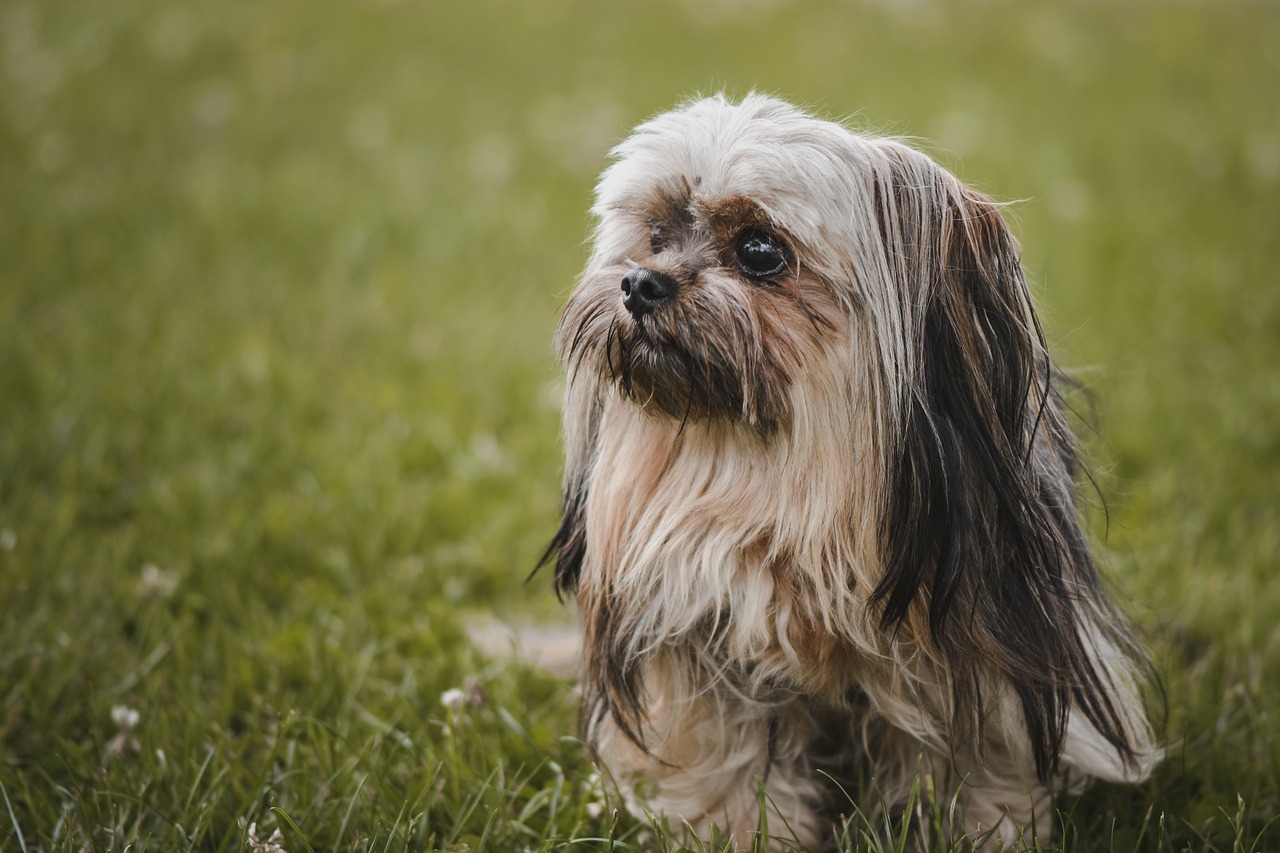
Training and Socialization
Training your Chihuahua is not just a task; it's an adventure filled with laughter, challenges, and a lot of love. These little bundles of energy are known for their strong personalities, which can sometimes lead to stubbornness if not managed properly. However, with the right approach, you can turn your Chihuahua into a well-mannered companion. The key is to start early. Puppies are like sponges, soaking up everything around them, so early training can set the tone for their behavior as adults. Think of it as planting seeds in a garden; with the right care, they will flourish into beautiful flowers.
When it comes to training techniques, positive reinforcement is your best friend. Instead of harsh corrections, reward your Chihuahua with treats, praise, or playtime when they follow commands. This method not only encourages good behavior but also strengthens the bond between you and your furry friend. For example, if your Chihuahua learns to sit on command, reward them immediately with a treat and a hearty "good boy/girl!" This creates a positive association with the command, making them more likely to obey in the future.
Socialization is just as important as training. Chihuahuas can be quite protective of their owners and may be wary of strangers. Exposing them to different environments, people, and other animals can help them develop into well-rounded dogs. Start socializing your Chihuahua at a young age by taking them to parks, pet-friendly stores, or even inviting friends over. Remember, the goal is to expose them to various stimuli without overwhelming them. Think of it as a gentle introduction to the world, where they can learn to feel safe and confident.
Here are some effective socialization tips to consider:
- Start Early: The sooner you begin socializing your Chihuahua, the better. Aim for exposure during their critical learning period, which is typically between 3 and 14 weeks of age.
- Gradual Exposure: Introduce new experiences gradually. Allow your Chihuahua to explore new environments at their own pace.
- Positive Experiences: Ensure that every new encounter is positive. Use treats and praise to reinforce good behavior during socialization.
- Controlled Environments: Start with controlled settings, like quiet parks or friends’ homes, before moving to busier areas.
In addition to basic commands and socialization, consider enrolling your Chihuahua in a training class. These classes not only provide structure but also allow your dog to interact with other dogs and people in a controlled environment. It’s a fantastic way for you to learn effective training techniques while your pup gets the socialization they need.
Remember, patience is key. Chihuahuas, like all dogs, need time to adjust and learn. Celebrate small victories along the way, and don’t get discouraged by setbacks. With consistent training and socialization, your Chihuahua will grow into a confident, well-behaved companion who is ready to take on the world with you!
Q: How long should training sessions be for my Chihuahua?
A: Training sessions should be short and engaging, ideally lasting between 5 to 10 minutes. This helps keep your Chihuahua focused and prevents them from becoming bored.
Q: Can I train my Chihuahua at home?
A: Absolutely! Home training is effective, especially when combined with socialization outings. Just ensure you’re consistent and use positive reinforcement.
Q: What if my Chihuahua is afraid of other dogs?
A: If your Chihuahua shows fear, take it slow. Gradually expose them to other dogs from a distance, rewarding them for calm behavior. Over time, you can decrease the distance as they become more comfortable.
Basic Commands
Teaching your Chihuahua basic commands is not just about obedience; it’s a way to strengthen the bond between you and your furry friend. Chihuahuas, with their sharp intelligence and keen eagerness to please, can learn commands quickly, making training sessions both effective and enjoyable. Start with simple commands like sit, stay, and come. These foundational commands are essential for ensuring your Chihuahua is well-behaved and safe, especially in public settings.
When training your Chihuahua, consistency is key. Use the same word for each command every time, and be patient. Remember, Chihuahuas can have a bit of a stubborn streak, so a gentle but firm approach works best. Incorporate positive reinforcement, such as treats or praise, to encourage your pet. For instance, when your Chihuahua successfully follows a command, reward them immediately. This method helps them associate the command with a positive outcome, making them more likely to repeat the behavior.
Here’s a quick overview of some basic commands you should consider teaching your Chihuahua:
- Sit: A fundamental command that can help you control your dog in various situations.
- Stay: Essential for keeping your dog safe and in one place when needed.
- Come: Crucial for recall, ensuring your dog returns to you when called.
- Down: Useful for calming your dog and ensuring they settle down when needed.
Incorporate training into your daily routine. For example, you can practice commands during walks or playtime. This not only makes training more engaging but also helps your Chihuahua learn in different environments. Remember, training should be a fun activity for both of you; keep sessions short and sweet, around 5 to 10 minutes, to maintain their attention and enthusiasm.
As you progress, gradually introduce more complex commands or tricks. This could include fun actions like roll over or play dead. Not only do these tricks impress your friends, but they also provide mental stimulation for your Chihuahua, keeping their minds sharp and engaged.
Lastly, don’t forget about socialization during training. Expose your Chihuahua to various people, pets, and environments. This exposure helps them learn how to behave appropriately in different situations and reinforces the commands they’ve learned. Remember, a well-trained Chihuahua is not only a joy to have but also a confident companion.
Q: How long does it take to train a Chihuahua?
A: The time it takes to train a Chihuahua can vary based on individual temperament and consistency in training. Generally, with regular practice, you can see results in a few weeks.
Q: Are Chihuahuas difficult to train?
A: While Chihuahuas can be a bit stubborn, they are also intelligent and eager to please. With patience and positive reinforcement, they can learn commands effectively.
Q: What is the best way to reward my Chihuahua during training?
A: Treats, praise, and affection are great rewards. Find what motivates your Chihuahua the most, whether it’s a favorite treat or lots of belly rubs!
Q: How often should I train my Chihuahua?
A: Short, frequent training sessions are best. Aim for 5-10 minutes a few times a day to keep your Chihuahua engaged without overwhelming them.
Socialization Tips
Socializing your Chihuahua is not just a good idea; it's essential for their overall well-being! These little furballs can be quite the characters, and ensuring they are well-adjusted in various environments will make your life—and theirs—much easier. Start by introducing your Chihuahua to different people, pets, and environments in a controlled manner. Remember, exposure is key! But how do you go about it?
First, consider setting up playdates with other friendly dogs. This allows your Chihuahua to learn appropriate behaviors while having fun. Just like humans, dogs learn a lot through play. Make sure to supervise these interactions to ensure everything goes smoothly. If your Chihuahua seems a bit overwhelmed, don’t force the situation; instead, let them take their time to get comfortable.
Another effective method is to take your Chihuahua on walks in various locations. Parks, busy streets, and even pet-friendly stores can provide new experiences that help your dog adapt to different sights and sounds. Each outing is a mini-adventure! Just be sure to keep your pup on a leash, especially in crowded areas, to ensure their safety.
Furthermore, enrolling your Chihuahua in a puppy socialization class can be incredibly beneficial. These classes often provide a structured environment where your dog can interact with other dogs and learn basic commands. The added bonus? You’ll get to meet other dog owners and share tips and experiences!
Lastly, don’t underestimate the power of positive reinforcement during socialization. Each time your Chihuahua interacts positively with a new person or pet, reward them with treats or praise. This will help them associate new experiences with good feelings, making them more open to future interactions.
In summary, socializing your Chihuahua is all about gradual exposure, positive experiences, and consistent reinforcement. By following these tips, you'll help your furry friend grow into a well-rounded companion, ready to take on the world with you!
- How early should I start socializing my Chihuahua? It's best to start socialization as early as possible, ideally when they are between 3 to 14 weeks old. However, older dogs can still benefit from socialization!
- What if my Chihuahua is shy or fearful? Take it slow! Gradually introduce them to new experiences and always reward them for positive interactions. Patience is key.
- Are there specific breeds I should avoid when socializing? While every dog is unique, it's wise to introduce your Chihuahua to calm and friendly dogs, especially during their early socialization stages.
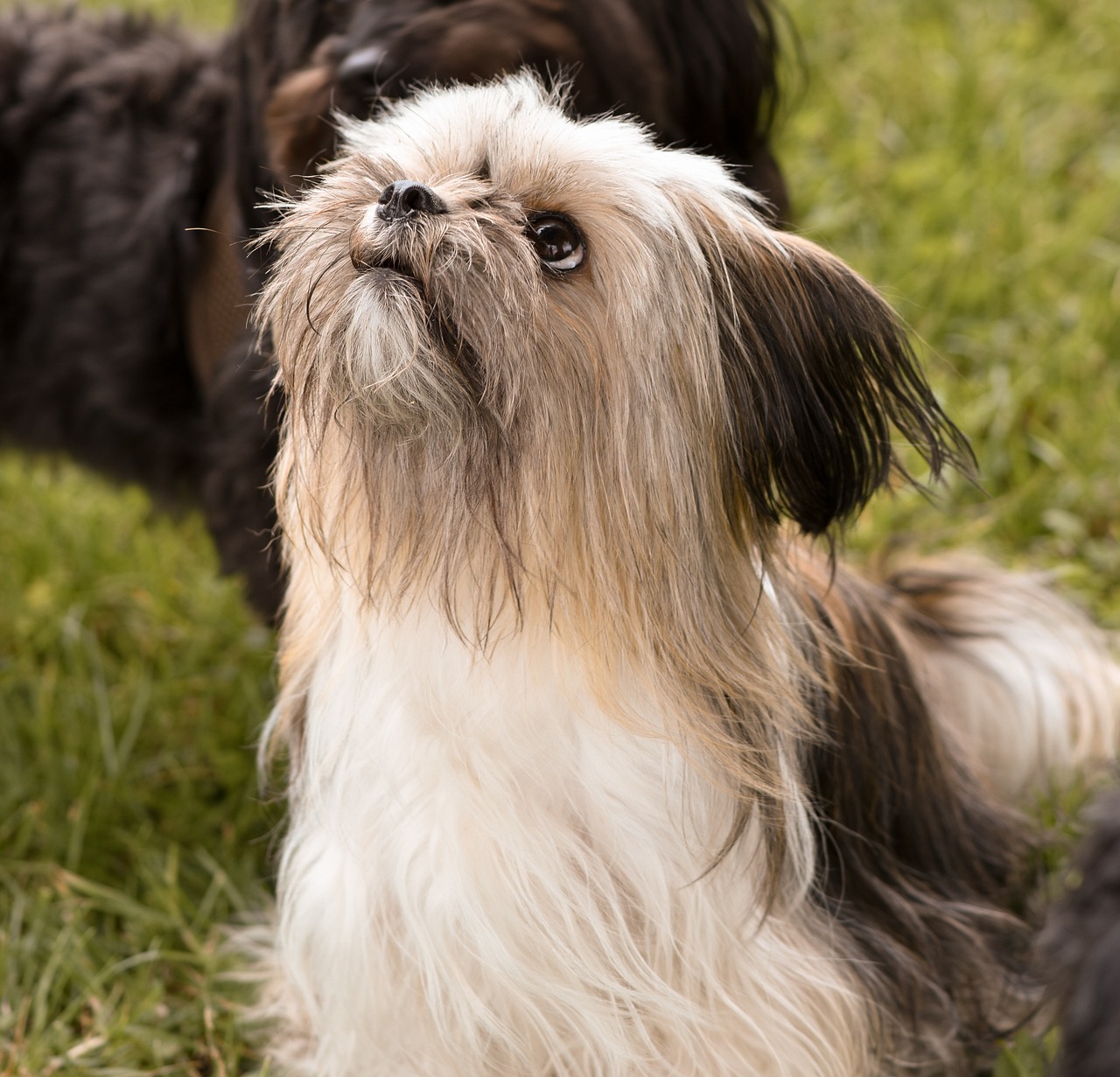
Living Arrangements
When it comes to choosing the right living arrangement for your Chihuahua, you’ll find that these little pups are incredibly adaptable. Whether you live in a cozy apartment or a spacious house, Chihuahuas can thrive in a variety of environments. Their small size and playful nature make them perfect companions for those who may not have a lot of space. However, it’s essential to consider their needs to ensure they lead a happy and healthy life.
In an apartment setting, Chihuahuas can be excellent companions. Their compact size allows them to navigate smaller spaces with ease. To keep your Chihuahua happy in an apartment, you should focus on the following:
- Regular walks: Even though they are small, Chihuahuas need daily exercise. A couple of walks a day can help burn off their energy and keep them fit.
- Playtime: Engage your Chihuahua with toys and games that stimulate their mind and body. This is crucial for their mental health.
- Safe space: Create a designated area in your apartment where your Chihuahua can relax and feel secure, away from noise and distractions.
On the other hand, if you’re fortunate enough to have a house, owning a Chihuahua can be even more rewarding. A house provides ample space for your furry friend to explore and play. Here are some tips to create a safe and stimulating environment for your Chihuahua:
- Secure your yard: If you have a backyard, ensure it is fenced and safe for your Chihuahua to roam. These dogs are known for their adventurous spirit, and a secure yard allows them to enjoy the outdoors without risking their safety.
- Indoor activities: Provide interactive toys and puzzles to keep your Chihuahua mentally stimulated. This is especially important if they spend time alone while you’re away.
- Socialization opportunities: Living in a house often means more interaction with neighbors and other pets. Ensure your Chihuahua has opportunities to socialize, which is crucial for their development and behavior.
Regardless of your living situation, it's essential to remember that Chihuahuas thrive on human interaction. They are known for their loyalty and affection, and they need to feel loved and secure in their environment. So whether you’re in a small apartment or a large house, creating a nurturing space for your Chihuahua will help them flourish.
1. Can Chihuahuas live in small apartments?
Yes, Chihuahuas are well-suited for apartment living due to their small size. Just ensure they get enough exercise and mental stimulation.
2. How much exercise do Chihuahuas need?
Chihuahuas require daily walks and playtime to stay healthy and happy. Aim for at least 30 minutes of activity each day.
3. Are Chihuahuas good with children?
Chihuahuas can be good with children if socialized properly. However, due to their small size, it's essential to supervise interactions to prevent accidental injury.
4. Do Chihuahuas get along with other pets?
With proper socialization, Chihuahuas can get along with other pets. Early exposure to different animals can help them develop friendly behaviors.
5. What should I consider before getting a Chihuahua?
Consider their temperament, exercise needs, grooming requirements, and potential health issues. Understanding these traits will help you become a responsible owner.
Apartment Living
Living in an apartment can be a fantastic experience for both you and your Chihuahua. These little bundles of energy are surprisingly adaptable and can thrive in smaller spaces. However, it's essential to create an environment that caters to their unique needs. Think of your apartment as a cozy nest where your Chihuahua can feel safe and stimulated. After all, a happy dog makes for a happy owner!
One of the first things to consider is the layout of your apartment. Chihuahuas are small and agile, so they don’t need a lot of room to run around. However, they do require a space that is free from hazards. Make sure to secure any loose wires or small objects that could be swallowed. A designated area for your Chihuahua to play and relax will go a long way in keeping them happy. Consider setting up a small play area with toys and a comfy bed.
Another crucial aspect of apartment living is ensuring your Chihuahua gets enough exercise. While they may not need as much space as larger breeds, they still require daily walks and playtime. A quick stroll around the block or a visit to a nearby park can provide mental and physical stimulation. Chihuahuas are known for their playful nature, so engaging them in activities like fetch or hide-and-seek can keep them entertained. Here are a few tips for exercising your Chihuahua in an apartment setting:
- Daily Walks: Aim for at least 30 minutes of walking each day, split into two sessions if needed.
- Indoor Play: Use toys that encourage movement, such as balls or interactive puzzles.
- Socialization: Arrange playdates with other small dogs to enhance their social skills.
It's also essential to consider the noise levels in your apartment. Chihuahuas can be quite vocal, and their barking may disturb your neighbors. Training your furry friend to control their barking is crucial. Positive reinforcement techniques work wonders. Reward them when they remain quiet, and redirect their attention when they start barking unnecessarily.
Finally, make sure your apartment is a safe haven for your Chihuahua. Chihuahuas are prone to feeling cold, so consider investing in a cozy sweater for those chilly days. Additionally, using baby gates can help keep them from wandering into areas that may be unsafe or off-limits. Remember, a safe and stimulating environment is key to a happy Chihuahua!
1. Can Chihuahuas adapt to apartment living?
Yes, Chihuahuas are very adaptable and can thrive in an apartment setting as long as their exercise and socialization needs are met.
2. How much exercise do Chihuahuas need in an apartment?
Chihuahuas typically need about 30 minutes of exercise per day, which can be achieved through walks and playtime.
3. Are Chihuahuas noisy in apartments?
Chihuahuas can be vocal, so training them to control their barking is important to avoid disturbing neighbors.
4. What should I do to keep my Chihuahua warm in an apartment?
Investing in a cozy sweater or blanket can help keep your Chihuahua warm during colder months.
House Living
Living in a house with a Chihuahua can be an incredibly rewarding experience. These little dogs thrive in environments where they can explore and interact with their surroundings. Unlike larger breeds that may require extensive space to roam, Chihuahuas are perfectly content with cozy corners and sunny spots to nap in. However, there are some important considerations to keep in mind to ensure your Chihuahua feels at home and happy.
One of the greatest advantages of house living is the space it offers for your furry friend to play and exercise. A Chihuahua needs regular physical activity to stay healthy and prevent obesity. Having a backyard or a garden provides an ideal setting for them to run around, chase after toys, or simply bask in the sun. It’s essential to create a safe area for your Chihuahua by ensuring that fences are secure and that there are no hazardous items within reach.
In addition to physical space, the environment inside your home should be tailored to suit your Chihuahua's needs. These dogs are known for their affectionate nature, so having a designated space where they can feel secure is crucial. Consider creating a cozy nook with a soft bed, blankets, and their favorite toys. This will not only give them a sense of belonging but also a safe retreat whenever they feel overwhelmed or tired.
Chihuahuas are also quite social and enjoy being around their human companions. It’s essential to engage with them regularly, whether through playtime, training sessions, or simply cuddling on the couch. The bond you build with your Chihuahua will flourish in a house setting where they can be an integral part of family activities.
To make your house even more Chihuahua-friendly, here are some tips:
- Keep small items out of reach to prevent choking hazards.
- Provide a variety of toys to stimulate their minds and keep them entertained.
- Ensure that your home is warm and draft-free, as Chihuahuas can be sensitive to cold temperatures.
- Regularly check for any escape routes, as these little dogs can be quite the escape artists!
In conclusion, house living can be an ideal arrangement for Chihuahuas, offering them the comfort, love, and space they need to thrive. By paying attention to their environment and engaging with them frequently, you can create a nurturing home that caters to their unique personality and needs.
Q: Are Chihuahuas suitable for families with children?
A: Yes, Chihuahuas can be good family pets, but it's important to supervise interactions with young children to ensure both the child and the dog are safe and comfortable.
Q: How much exercise does a Chihuahua need?
A: Chihuahuas typically require about 20-30 minutes of exercise each day, which can include walks, playtime, and mental stimulation activities.
Q: Do Chihuahuas bark a lot?
A: Chihuahuas are known to be vocal dogs. They may bark to alert you of strangers or simply to get attention. Training can help manage excessive barking.
Q: What should I feed my Chihuahua?
A: A balanced diet with high-quality dog food is essential. Consult your veterinarian for specific dietary recommendations based on your Chihuahua's age, weight, and health.
Q: How can I keep my Chihuahua safe in the house?
A: Ensure that small items, toxic plants, and hazardous materials are out of reach. Also, supervise them around stairs and open windows to prevent accidents.
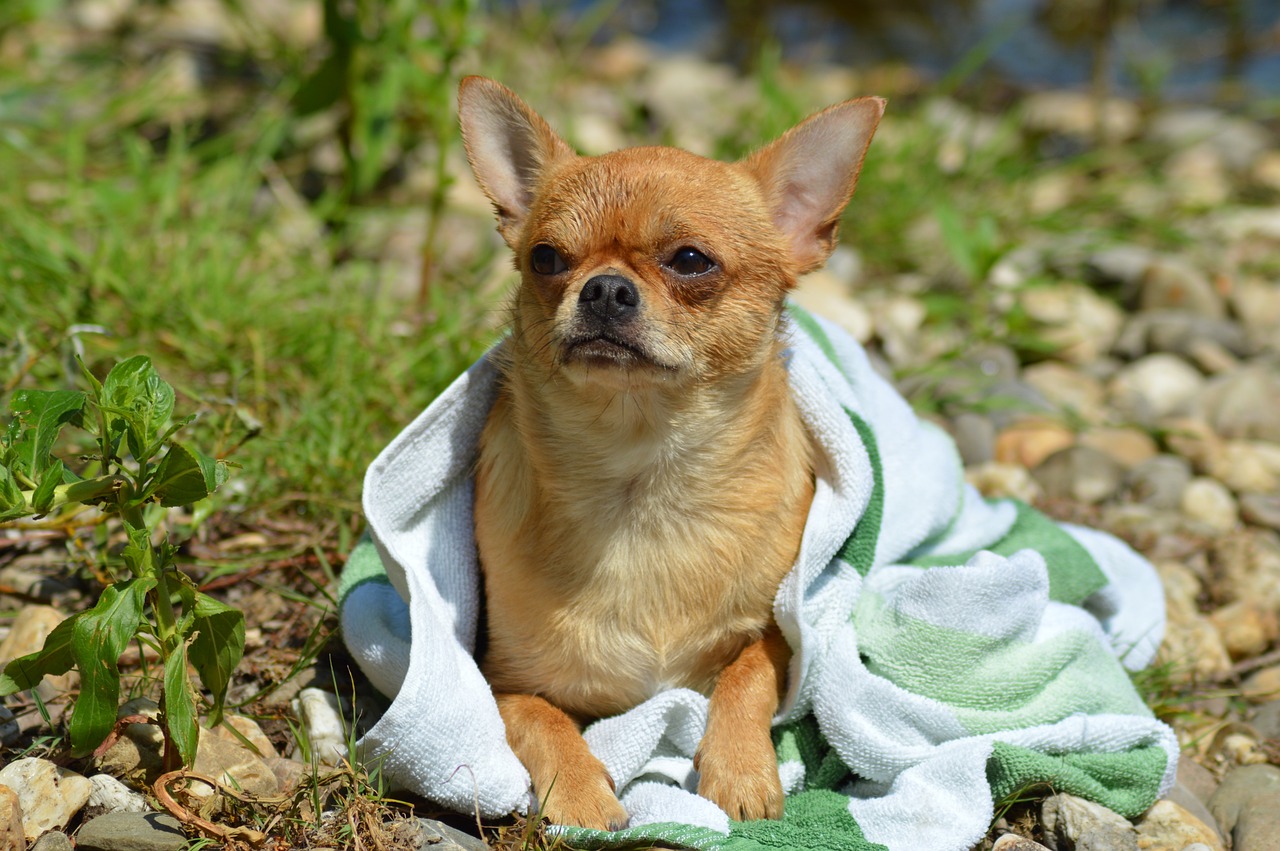
Conclusion
In conclusion, understanding the traits of Chihuahuas is essential for anyone considering bringing one of these spirited little dogs into their home. Chihuahuas are not just small in size; they come with a big personality that can light up any room. Their loyalty and affection make them wonderful companions, but their occasional stubbornness can pose challenges during training. It's vital to recognize that each Chihuahua is unique, and their behavior can vary widely based on individual temperament and upbringing.
As we explored throughout this article, the physical characteristics of Chihuahuas, including their coat types and size variations, play a significant role in their care and maintenance. Whether you choose a short-haired or long-haired Chihuahua, understanding their grooming needs is crucial. Additionally, being aware of common health issues specific to the breed can help you take preventative measures to ensure a long and healthy life for your furry friend.
Training and socialization are also key components of raising a well-rounded Chihuahua. These dogs thrive on positive reinforcement and consistent training methods, making it essential for owners to invest time in teaching basic commands and socializing them with other pets and people. Remember, a well-socialized Chihuahua is a happy Chihuahua!
Lastly, whether you live in an apartment or a house, Chihuahuas can adapt to a variety of living arrangements. With the right environment, they can flourish and bring joy to your life. By considering all these traits and needs, you will be better equipped to provide a loving and nurturing home for your Chihuahua.
- What is the average lifespan of a Chihuahua?
The average lifespan of a Chihuahua ranges from 12 to 20 years, depending on their health and care. - Do Chihuahuas shed a lot?
Short-haired Chihuahuas shed less than long-haired ones, but both require regular grooming to minimize shedding. - Are Chihuahuas good with children?
Chihuahuas can be good with children if properly socialized, but supervision is recommended due to their small size. - How much exercise do Chihuahuas need?
Chihuahuas need daily exercise, such as walks or playtime, but their small size means their exercise needs are manageable.
Frequently Asked Questions
- What is the typical temperament of a Chihuahua?
Chihuahuas are known for their bold and lively personalities. They are often affectionate and loyal to their owners, but can also be a bit stubborn. This mix makes them both charming and challenging, as they can be very vocal and protective of their territory.
- How big do Chihuahuas typically get?
Chihuahuas vary in size, generally weighing between 2 to 6 pounds and standing about 6 to 9 inches tall at the shoulder. Their size can impact their health and care needs, so it’s important to consider this when choosing a Chihuahua as a pet.
- What are the grooming needs for Chihuahuas?
Chihuahuas come in short-haired and long-haired varieties. Short-haired Chihuahuas are easier to maintain and require less grooming, while long-haired Chihuahuas need regular brushing to keep their coats healthy and free of tangles.
- What health issues should I be aware of?
Chihuahuas can be prone to certain health problems, such as dental issues and heart conditions. Regular veterinary check-ups are essential to monitor their health and catch any potential issues early.
- How can I effectively train my Chihuahua?
Training a Chihuahua requires patience and consistency. Start with basic commands and use positive reinforcement techniques, such as treats and praise, to encourage good behavior. Socialization is also key to helping them interact well with people and other pets.
- Are Chihuahuas suitable for apartment living?
Yes! Chihuahuas can thrive in apartment settings due to their small size. Just make sure to provide them with enough exercise and mental stimulation through walks and playtime to keep them happy and healthy.
- What is the best way to socialize my Chihuahua?
Socializing your Chihuahua involves exposing them to different people, environments, and other animals from a young age. Gradually introduce them to new experiences and reward them for calm behavior, which helps them grow into well-rounded pets.



